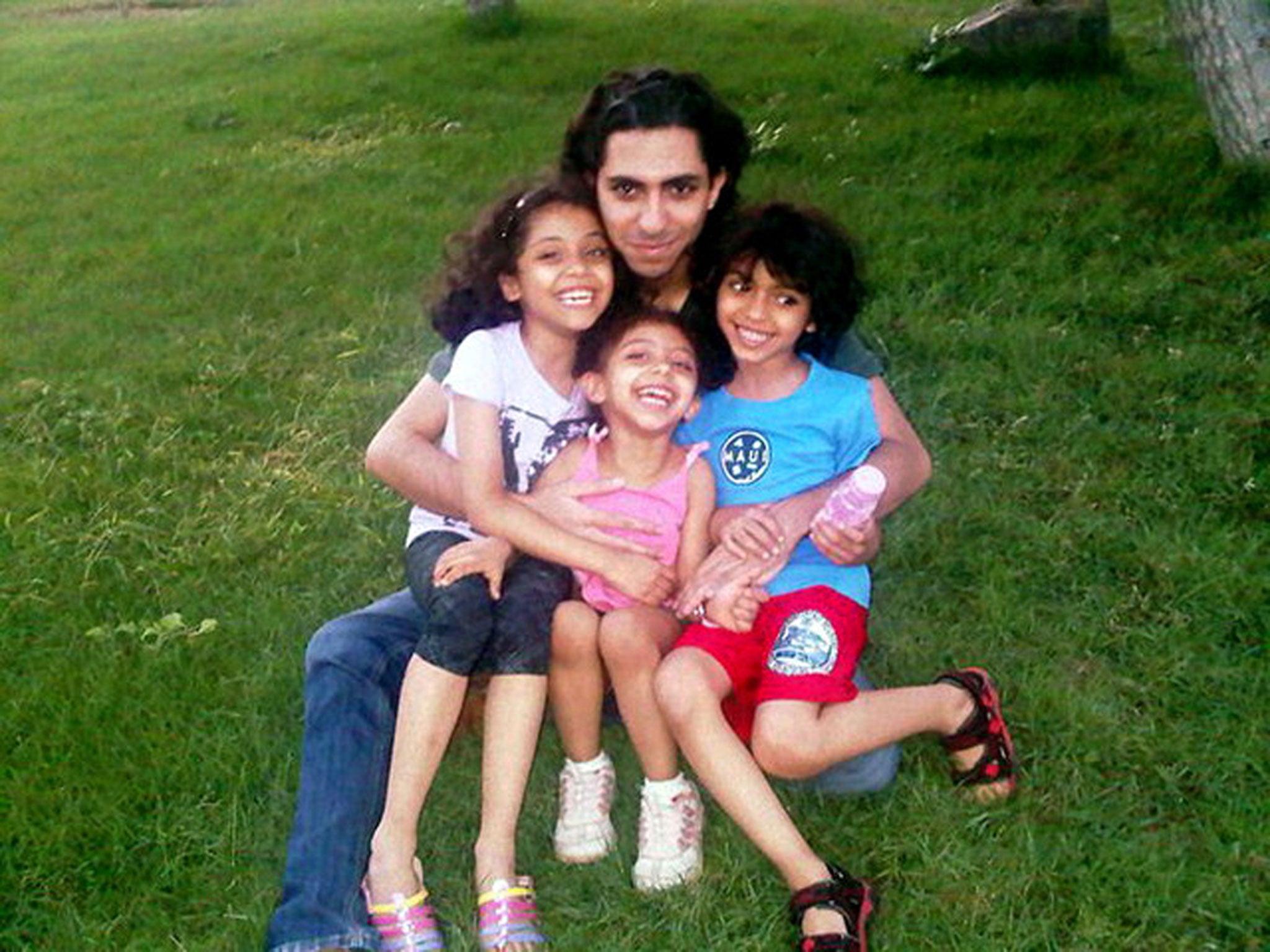We can win the fight to save Raif Badawi from the horror of Saudi Arabian ‘justice’
The treatment of the blogger is grotesque, hypocritical, but also depressingly familiar in Saudi Arabia

Do we see a glimmer of light in the dark case of Raif Badawi? King Abdullah has referred the case to the Saudi Arabian supreme court, following the international dismay at the public flogging Badawi received earlier this month.
Last week the news was grim. The imprisoned blogger might not have received his scheduled 50 lashes on Friday morning, but this was no act of clemency on the part of the Saudi authorities. The flogging was only delayed because Badawi was too ill and weak from his flogging the week before.
One-thousand lashes and a 10 year prison term would be a brutal punishment for any crime. But the fact that Badawi has received this sentence for insulting Islam and of founding a liberal website is astonishing. The world is appalled. The Charlie Hebdo murders have drawn public attention to ideas of freedom of speech and blasphemy, and the Raif Badawi case offers a chillingly convenient coda to the events in Paris.
It's sad and frustrating that the world’s media only took proper notice of the Badawi conviction when, in an act of breathtaking hypocrisy, the Saudi Arabian ambassador to France joined world leaders at the solidarity march through the French capital. As many pointed out, the image was completely discordant with reality. As people have begun to dissent and unpack the meaning behind the #JeSuisCharlie hashtag, #FreeRaif has taken off. Perhaps the protests and the vigils that are now taking place at Saudi embassies will give him and his family solace.
The treatment of Raif Badawi exposes three awful ironies. The first is that the ideas he espoused are not the threat that the Saudi Royal family assumes them to be. As the British system proves, democracy and the monarchy can co-exist. Discussion of secularism and atheism are good for Islam too. For religious faith to be genuine, it needs to be challenged.
What's more, instead of fostering free expression and new ideas, the Saudi Arabian government acts as a violent censor. By crushing dissent and allowing religious fundamentalists to run amok, it suppresses the evolution of Saudi and Islamic culture. This is the second irony.
The final contradiction is that the state's treatment of Badawi has led to his words being read and shared all around the world. Even though he sits in a prison cell, he is winning friends and influencing people with his wry take on religion and democracy.
Unfortunately, the Badawi's brutal treatment by Saudi Arabia is not an isolated event. The state routinely arrests reformers and free-thinkers without charge, and doles out lengthy, disproportionate prison sentences. Two writers were arrested in 2012 for "blasphemous" tweets they had posted. Their crime carries the death penalty.
The women's rights activists Wajeha Al-Huwaider and Fawzia Al-Oyouni live under constant threat of imprisonment after their 2013 conviction for helping a Canadian woman living in Saudi Arabia flee her abusive husband. Last year Wajdi al-Ghazzawi, the owner of the religious broadcaster Al-Fajr Media Group, received a 12 year prison sentence for sedition. And Habib Ali al-Maatiq and Hussein Malik al-Salam, who used to run the independent Al-Fajr Cultural Network website, are also in prison. All these cases demonstrate the concerted policy of the Saudi Arabian government to eradicate peaceful freedom of expression.
We can't let this continue. It might seem hard enough to change anything in our own country, let alone somewhere in the Middle East, but it can be done. Earlier this month, British Prime Minister David Cameron affirmed his support for free speech in the wake of the Charlie Hebdo massacre. If he really believes that, then the British Government must urgently review its relationship with Saudi Arabia.
Join our commenting forum
Join thought-provoking conversations, follow other Independent readers and see their replies
Comments
Bookmark popover
Removed from bookmarks